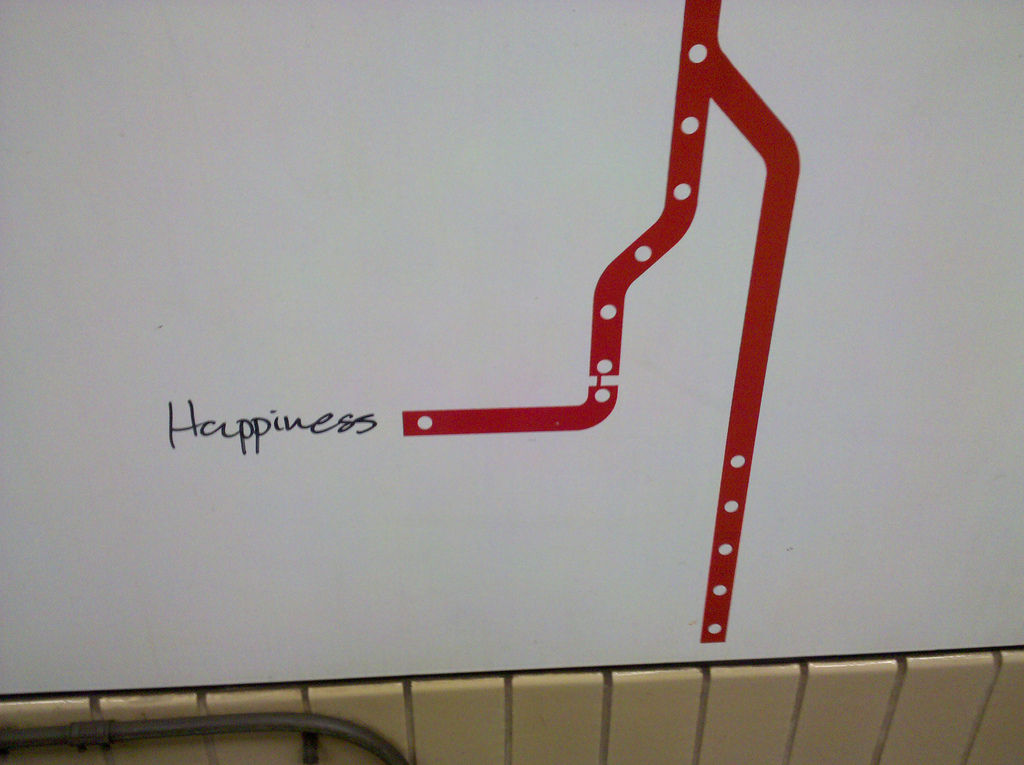
Recently I was at a breakfast with social entrepreneurs where we were asked “what do we mean by a ‘better Baltimore?'” It is something we all talk about, it’s embedded in the mission statements of our companies and nonprofits, but what does a better Baltimore actually look like? Happier people? Economic opportunity for all? Healthier physical, emotional, and social well being?
For that matter what do we mean by a “better world?” What are the metrics for determining whether or not we are effectively improving lives or if we are changing anything at all? This question was first voiced by Angelique and it resonates with all of the work we discuss on ChangeEngine. How can we tell whether anything we promote, propose, point out, or implement actually has an effect on the community?
The social change field has gotten better at determining organizational impact. Every nonprofit nowadays seems to be working on a logic model or theory of change. However I think in order to truly measure impact effectively we need a universal measure that:
- is a relatively objective system of measurement that allows us to effectively compare models of social change and determine failure as well as success.
- examines the whole person and allows for collaboration. People don’t live in silos. Food effects education which effects economic opportunity, etc. In the end what makes a person or a community better and how do we measure that end result?
- allows us to track social change trends for communities, cities, countries, and the world.
In the economic sphere of social change the universal measure is profit. I think profit has become the bottom line for most of our work because we believed in the American dream, a theory of change that suggested by increasing profit we could increase our purchasing power which would allow us to access the innovations that would make our lives easier and thus make us happier people. If you’ve read my other blogs here, you’ll know that I don’t think that’s true. I think there are ways to meet our needs without money and I think happiness isn’t measured purely by one’s bank account.
Yet the question of what we should measure is as difficult as trying to determine the meaning of life. Then you have the Herculean task of trying to figure out how to measure it.
There have been some attempts. Many people are familiar with the Bhutanese system to combine measures of spiritual and material development into a measure called Gross National Happiness (GNH). in 2006, Med Jones of the International Institute of Management proposed a second-generation GNH measure that used the following metrics to determine happiness:
- Economic wellness: Indicated via direct survey and statistical measurement of economic metrics such as consumer debt, average income to consumer price index ratio and income distribution.
- Environmental wellness: Indicated via direct survey and statistical measurement of environmental metrics such as pollution, noise and traffic.
- Physical wellness: Indicated via statistical measurement of physical health metrics such as severe illnesses.
- Mental wellness: Indicated via direct survey and statistical measurement of mental health metrics such as usage of antidepressants and rise or decline of psychotherapy patients.
- Workplace wellness: Indicated via direct survey and statistical measurement of labor metrics such as jobless claims, job change, workplace complaints and lawsuits.
- Social wellness: Indicated via direct survey and statistical measurement of social metrics such as discrimination, safety, divorce rates, complaints of domestic conflicts and family lawsuits, public lawsuits, crime rates.
- Political wellness: Indicated via direct survey and statistical measurement of political metrics such as the quality of local democracy, individual freedom, and foreign conflicts.
Another measure is called National Accounts of Well Being, developed by the New Economy Foundation. They use the scientific definition of “subjective well-being” which suggests in addition to experiencing good feelings people need:
- a sense of individual vitality
- to undertake activities which are meaningful, engaging, and which make them feel competent and autonomous
- a stock of inner resources to help them cope when things go wrong and be resilient to changes beyond their immediate control.
They also believe that it is crucial that people feel a sense of relatedness to other people so in addition to measuring the individual aspects of well-being they also look at the degree of which people have supportive relationships and a sense of connection with others. They have identified seven main components of well being which they measure using national Well-Being profiles.
These measures are just two examples of systems that have the potential to help us define the end result of social change and measure our effect on people and communities.
And now a word from our sponsors…If you have been waiting for a chance to meet me in person your time has come. I will be the Mesh Baltimore Skillshare on March 2 waxing poetic on “How to Bring Your Quirk to Social Media.” After you pump me for information on creating a wacky, bizarre, and totally awesome social media presence, you can attend sessions on writing about food, organizing your life, and homebrewing. Check out Mesh Baltimore and sign up for the Skillshare here.
But wait there’s more! I’m teaming up with UGive.org for a Tweet Chat on “Marketing Your Social Enterprise” on March 6th at 3pm EST. If you share my passion for social enterprise you will not want to miss this discussion! Sign up using EventBrite or just join us using the hashtag #HowDoUGive.
